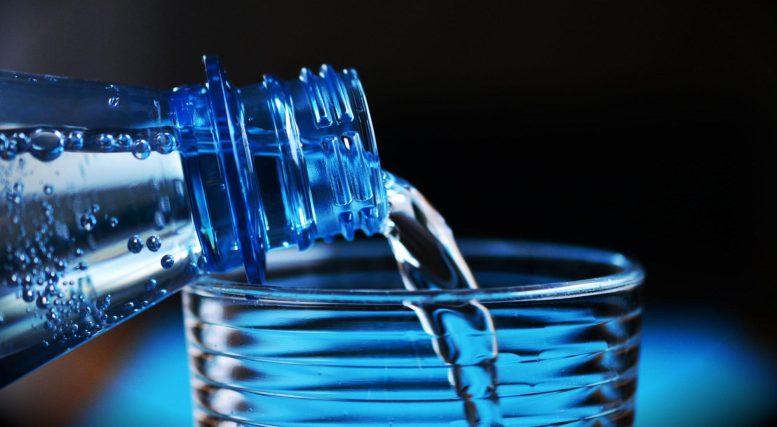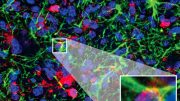
New research suggests that bottled alkaline water is ineffective for preventing urinary stones due to its negligible alkali content, despite its higher pH compared to regular water. Alternative treatments like orange juice or baking soda, with higher alkali content, might be more effective and cost-efficient.
The Journal of Urology reports that other options offer a higher alkali content for increasing pH levels.
A recent study published in The Journal of Urology, suggests that bottled water labeled as “alkaline water” may not be a viable option for preventing recurring urinary stones.
“While alkaline water products have a higher pH than regular water, they have a negligible alkali content – which suggests that they can’t raise urine pH enough to affect the development of kidney and other urinary stones,” comments senior author Roshan M. Patel, MD, of University of California, Irvine.
Alkaline water as an alternative to prescription drugs for stone prevention?
Alkaline water, sometimes called high-pH water, is an increasingly popular category of bottled water. Compared to tap water, with a typical pH of around 7.5, alkaline water is manufactured to have a higher (more alkaline) pH – in the range of 8 to 10.
Consumption and sales of alkaline water have increased sharply in recent years. Proponents claim various health benefits, including improved hydration and increased urinary pH. Raising pH is a key strategy to prevent the formation of certain types of urinary stones (uric acid or cystine) in patients with previous stones. (The Urology Care Foundation™ offers information on kidney stone prevention.)
Potassium citrate tablets are commonly prescribed to prevent recurrent stones. However, many patients do not follow recommended treatment – often related to the need to take large pills several times per day. If alkaline water could raise urinary pH, it might be an attractive alternative for stone prevention.
To assess the potential for high-pH water to prevent urinary stones, Dr. Patel’s team measured the pH of five commercially available alkaline water products. They also reviewed published data on other types of drinks and over-the-counter products with the potential to raise urinary pH.
Despite higher pH, alkaline water has ‘trivial’ alkali content
The five brands tested in the study had a similar pH, in a narrow range of around 10. One product contained a small amount of citrate, which was not listed on the product label. Otherwise, the tested alkaline waters had no organic anions that can be metabolized to alkali by the body – as supplied by potassium citrate tablets.
At a pH of 10, the tested products would have an alkali content of just 0.1 milliequivalent per liter (mEq/L). That’s a “trivial” concentration compared to the body’s typical metabolic acid production of 40 to 100 mEq/L per day, according to the authors.
In contrast, some other commercially available products do have the potential to increase pH – notably including orange juice, with an alkali content of up to 15 mEq/L. Orange juice also has the lowest estimated cost to achieve the target alkali concentration of 30 mEq per day.
Baking soda was among the most effective and cost-efficient alternatives, although with potential concerns related to sodium content. Newer products dissolvable in water also appeared to provide useful and affordable options.
“Our findings may help to guide the selection of other treatments, including beverages and over-the-counter products, for preventing recurrent urinary stones,” adds Dr. Patel. The researchers note the limitations of their laboratory study and emphasize the need for clinical trials of the options for raising urinary pH.
Reference: “Alkaline Water: Help or Hype for Uric Acid and Cystine Urolithiasis?” by Paul Piedras, Andrei D. Cumpanas, Amanda McCormac, Seyed Amiryaghoub M. Lavasani, Antonio R. H. Gorgen, Allen Rojhani, Minh-Chau Vu, Rohit Bhatt, John Asplin, Zachary E. Tano, Jaime Landman, Ralph V. Clayman and Roshan M. Patel, 1 February 2024, The Journal of Urology.
DOI: 10.1097/JU.0000000000003767









Except for the idea of alkalizing with orange juice the article makes good sense to me. A little additional online research and even the orange juice (low calorie) now makes sense. However, as a now senior former primarily diagnostic industrial electrician mostly troubleshooting breakdowns on production shifts, and a long time believer that “an ounce of prevention is worth a pound of cure,” my personal findings on the cause of low pH urine are that it mostly results from nearly subclinical non-IgE-mediated food (minimally) allergy reactions (e.g., Dr. Arthur F. Coca, by 1935) aggravated (or not) with FDA approved food poisoning (namely added soy and artificially cultured “free” MSG) and resultant of long-term (months to decades, highly individual, many individual variables) chronic mild inflammation. To my ongoing recent experience, minimal dosing with potassium bicarbonate capsules can help to at least temporarily, safely raise urine pH. No stones to date.